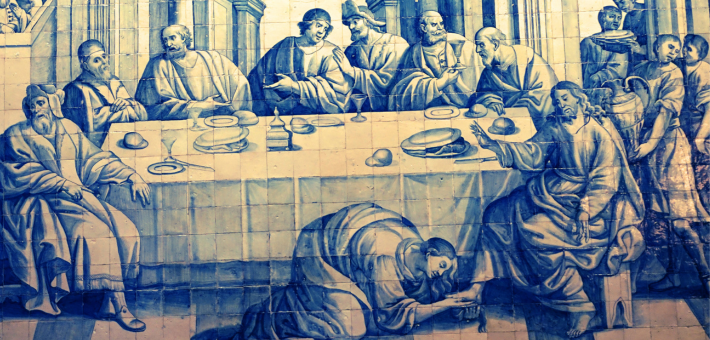Commentary on Isaiah 43:16-21
“There is nothing new under the sun,” says the wise Teacher. “History repeats itself.” These are adages reminding us that epochs of history are almost cyclical with the rise and fall of empires. Wars will come (but never seem to end), inventions will be celebrated and superseded, disasters will befall us and we will rebuild. These and more occur repeatedly with each generation. Without hope and knowledge of what God can and will do, the banality of human existence can overwhelm us as we take stock of all that is happening in our world.
Isaiah 43 is a salvation oracle. It is a text about who God is and what God has done (and will do). It was first addressed to the exilic community who had long accepted and settled into their lot. Lest the people forget, the prophetic voice reminds them of who their God is. God is identified as the one “who … (does something)”1 three times in the chapter:
- In 43:1, the Lord is the one “who created” and “who formed.”
- In 43:16 (which introduces our lectionary text), the Lord is the one “who makes a way in the sea …” and “who brings out [the enemy] …”
- In 43:25, the Lord is the one “who wipes out our transgressions …”
The salvific acts of God that encompass past, present, and future are encapsulated in Isaiah 43. God has acted because the Lord is “the LORD your God, the Holy One of Israel, your Savior” (verse 3). More importantly, God’s work cannot be understood apart from God’s special relationship with the people. Again, lest the people forget, the prophetic voice reminds them that God has done these things for them because they are precious in God’s sight, are loved by God (verse 4), and are God’s chosen ones (verse 20). They are God’s children, called by God’s name, created and formed by God (verses 6–7). God is in their corner and rooting for them.
Our lectionary text, verses 16–21, is a section set against this larger backdrop. Verse 16 (cited above) unmistakably refers to the exodus tradition, specifically the crossing of the Red Sea in Exodus 14. In that act of liberation and deliverance, God created dry land through sea for the Israelites to pass safely while Pharaoh’s army gave chase on their horses and chariots. The sea waters closed in on the army (after the Israelites had safely crossed the sea), and the prophetic poet recalls that “they are extinguished, quenched like a wick” (verse 17).
This event has become paradigmatic of God’s salvation in the cultural memory of the Israelites. However, the past is a mere prologue to what the Lord is doing now and will do in the future. After evoking memories of the exodus, the prophetic voice charges the people not to remember the former things, nor consider the things of old, because God is doing a new thing (verse 18).
The exodus of the past will not be the only salvific event God’s people can speak about. God’s salvation and liberation for them are continuous and contemporary. The people need not rely on memory; God’s people can speak of their very own present experiences of God’s salvation. “A new thing” is happening here and now for this generation of God’s people.
“A new thing” is also a reminder not to limit God’s salvific acts according to past events. It is often observed that the new thing will be greater than the old. The new thing will also be different. The contrast between the old and the new is the point of this section. God will make a way through the wilderness, and water will spring forth from the most harsh and arid conditions of the landscape. This is the converse of what God had done before—that is, making a dry way through the waters.
Now, the wilderness will be tamed and become habitable. Even the wild animals will receive sustenance and be drawn to honor God. This is reminiscent of a new creation where wild beasts will be tamed and all creation can coexist. In God’s salvation and restoration, our uninhabitable world will be healed and we can thrive.
If we read this section (verses 16–21) as a whole, there is yet another homiletical point. God triumphs over all that causes fear and chaos in our lives, and over all that threatens our existence, be it water, war, or wilderness. The Lord makes a new way. It is a fulfillment of the promise made in 43:2–3:
When you pass through waters, I will be with you,
and through the rivers, they shall not overwhelm you;
when you walk through fire you shall not be burned,
and the flame shall not consume you.
For I am the LORD your God, the Holy One of Israel, your Savior.
This text reminds us of who God is—our Savior; and of who we are to God—precious and loved. Our present realities might feel like mighty waters or the wilderness, but we can wait in confidence and expectation that God’s salvation is at hand. Remembrance and recollection continually renew our confidence that God is able and mighty. However, such salvific acts do not remain in the past. God continually acts, and a new thing will spring forth.
As the poet says, God’s mercies are new every morning (Lamentations 3:23). Do we perceive it?
Notes
- These phrases are translated from substantive participles in Hebrew.


April 6, 2025